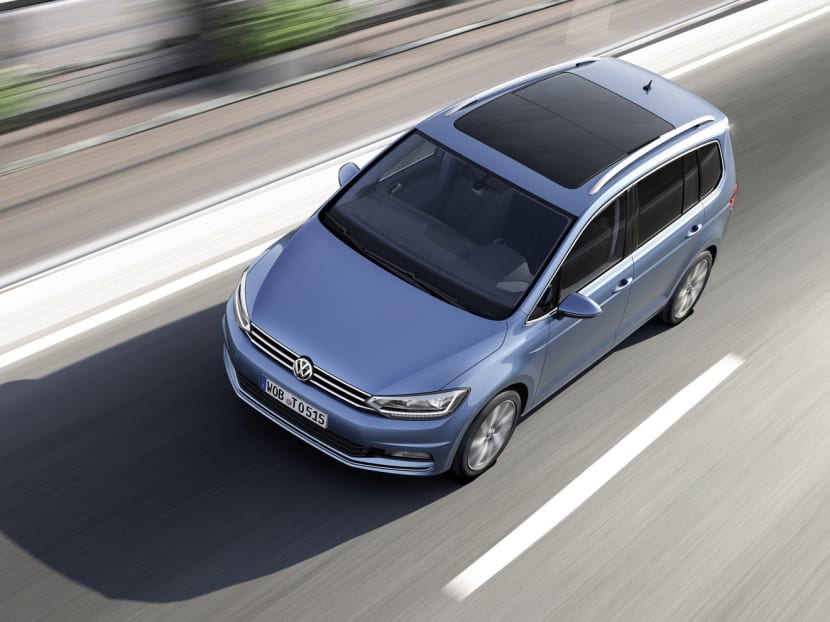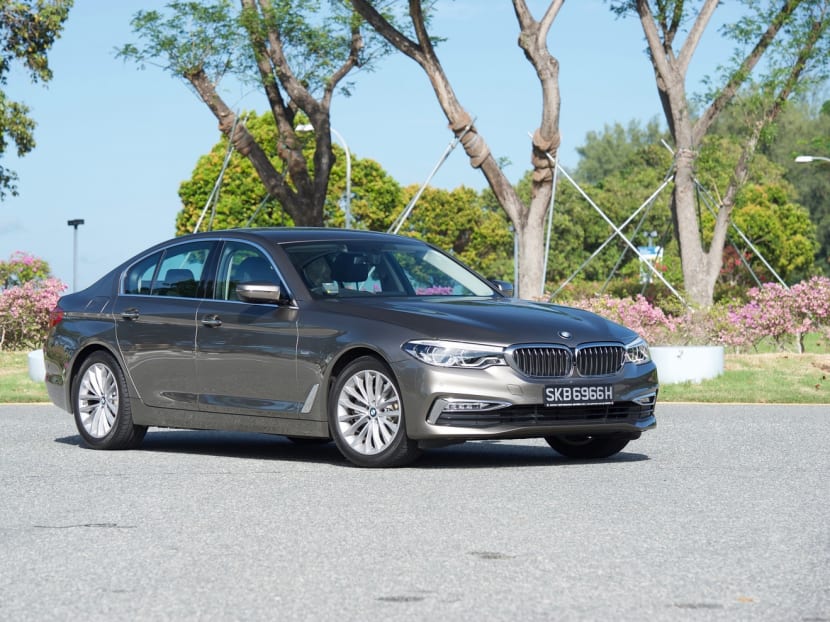Making a case for diesel cars
SINGAPORE — It is hard to talk about diesel cars without bringing up “Diesel-gate”, that incident in which Volkswagen decided to fudge the results of its diesel emissions tests. Even though just a handful of Volkswagen owners in Singapore were affected, collectively, the world seems to have fallen out of love with diesel-powered cars.


SINGAPORE — It is hard to talk about diesel cars without bringing up “Diesel-gate”, that incident in which Volkswagen decided to fudge the results of its diesel emissions tests. Even though just a handful of Volkswagen owners in Singapore were affected, collectively, the world seems to have fallen out of love with diesel-powered cars.
It seemed like only yesterday that diesel power seemed to be the solution to all our mobility problems. Inherently more efficient than petrol, the typical diesel engine consumes less than half of what an equivalent-sized petrol-powered unit requires to move the same car.
Furthermore, the price of diesel in Singapore is significantly lower than petrol, which reduces running costs further. That also translates to lower carbon dioxide (CO2) emissions, meaning substantial Carbon Emissions-based Vehicle Scheme (CEVS) rebates which, in turn, leads to diesel models coming with lower asking prices.
Diesel engines also tend to produce more torque, which gives the car effortless acceleration in the low-speed city driving conditions that typify Singapore’s roads. But diesel technologies also have their drawbacks.
Although modern turbodiesel engines emit comparatively lower CO2 levels, they tend to emit higher amounts of particulate matter. So much so that cities such as Paris, in which more than 90 per cent of vehicles run on diesel, the issue of smog saw the local government taking swift measures to curb the usage of diesel vehicles and promote electric vehicles instead.
In Singapore, the current CEVS rebate scheme will be replaced by the Vehicular Emissions Scheme (VES), which takes into account other pollutants such as hydrocarbons (HC), carbon monoxide (CO), nitrogen oxides (NOX) and that pesky particulate matter (PM) as well as CO2.
The VES, which comes into effect from Jan 1 next year, measures which pollutant registers the highest output from a car, and the appropriate rebate or surcharge amount that would apply. Under this scheme, most diesel cars are expected to be penalised for their PM emissions.
So it seems that now is the best time to buy a diesel car, if only to take advantage of the CEVS rebate while you still can.
And if you are not yet convinced that diesel cars might be worth looking at, the shortest drive in one could change your mind.
We tested two cars: A BMW 520d and a Volkswagen Touran TDI.
The BMW, at S$261,800 (with COE), may be the cheapest BMW 5 Series on the market — the next model up, the 530i, costs S$20,000 more.
However, it does not feel cheap, nor look it. From the outside, only the ‘520d’ badge gives the game away: To the casual onlooker, it could easily be mistaken for the 7 Series flagship, thanks to the full complement of LED head and tail-lights that accentuate its looks.
You are not slumming it in the performance department, either. With up to 400Nm of torque available from just 1,750rpm, this is one car that has serious pulling power (you would have to step all the way up to the range-topping 540i to better this performance).
This means that the BMW 520d effortlessly leaves all traffic behind when the lights turn green.
Best of all, the fuel tank, when full, lets you go for 780km or so before you need a top-up.
The Volkswagen Touran TDI, on other hand, does not offer the same level of excitement. But at S$138,900, it is a whopping S$122,900 cheaper than the Beemer, so no one is really complaining.
It is a compact seven-seater MPV that is suited to school runs and soccer practice. Powered by a modest 116hp 1.6-litre turbodiesel engine, it qualifies for a Cat A COE — but its 250Nm torque output means that it can still entertain keener drivers when the mood suits.
Those with big families but small budgets would appreciate its nifty fuel-saving party tricks, which the German automaker refers to as “Bluemotion technologies” that promise to stretch every drop of diesel for as far as possible.
When you select the “Eco” mode on the Drive Mode Selector, for example, the seven-speed DSG automated transmission does things like automatically disengage both its clutches from the gearbox to allow the car to coast in neutral. The moment the driver steps on the brake or accelerator pedal, the DSG re-engages seamlessly.
The high seating position and the airline-style foldable tables are also great for those with young children: This means that that they have ample space to place their snack and juice boxes, while they are watching the world go by.
Also, the panoramic sunroof, which stretches to almost the entire length of the car, turns every drive into an adventure for the young ones and leaves dad alone to drive in peace. It is a win-win situation.
Eco-travel is still seemingly a long-distance target at the moment. Electric vehicles have yet to be commonplace, although as the saying goes, the journey of a thousand miles begins with a single step — and we are taking steps to get there.
So if you are an eco-conscious driver, the best alternative, it seems, are the diesel cars — “Dieselgate” notwithstanding — and if you are thinking of getting one, it appears that, to paraphrase another saying, there is no time quite like the present.





